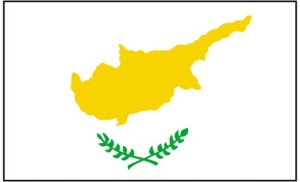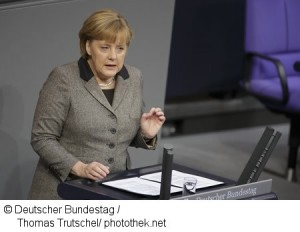If there were awards for creating market instability, the ECB/IMF plan to impose a “tax” on Cypriot depositors – effectively renouncing depositors’ insurance guarantees – would rank second only to the US Treasury decision to let Lehman Brothers go bankrupt, at least in the 21st Century. The Cypriot Parliament wisely and unanimously rejected the deal, save for members of the ruling party who abstained in a vote yesterday afternoon.
The rejection sets the stage for a bailout by Russia (whose oligarchs reportedly make up about 40% of the deposit base) in exchange for gas exploration rights. The amount required to bail out Cyprus is said to be under six billion Euros, a relatively small amount (about €5,300 per person on a per-capita Cypriot annual income of €20,800.)
Notwithstanding the vote, though, Cypriot banks are likely to experience serious runs come Thursday, when they are scheduled to reopen. The ECB/IMF cannot “unring” the warning bell to depositors in Cyprus — and the PIGS of Europe — that their funds are at risk. Foreign commerce into and out of the country will probably stall (and exacerbate conditions) as fear of a banking crisis continues. The next several days will be critical.
Here’s what we recommend:
- Maintain the public banking holiday for at least 30 days, while allowing ATM withdrawals at a maximum daily limit. Check and debit card transactions would be exempt, but for cumulatively no more than five times the daily ATM withdrawal limit per week and only for the purchase of merchandise or services.
- For the next 30 to 90 days, open regulated banking facilities only for the settlement of foreign and domestic commercial transactions and to extend credit to maintain the flow of inbound and outbound commerce, raw materials, imports and exports. (That is, Outbound transfers of cash should be allowed only if supported by an approved invoice from the foreign seller. Likewise, inbound cash would have to be supported by purchase orders or contracts from a foreign purchaser. The ECB and IMF should guarantee payment to foreign suppliers until the crisis period passes.)
- Put the Cypriot gas deposit rights that the Russians want up for bid to be settled within 30 days and with a non-refundable ante of 1% to 3% of the proposed bid to enhance the return on their sale. The successful bids – all the more volatile, given reports that both Russia and China have an interest not only in gas but in a naval base on Cyprus -should be sufficient to meet all or most of the €6,000,000 Cypriot shortfall. Any shortfall should be covered by the ECB/IMF as a loan.
- The Cypriot Parliament should amend the Banking Law of 1997 to provide that depositors’ principal funds cannot be attached or “taxed” by the government for any reason except by court order executing a judgment against the depositor.
- Simultaneously, Cyprus must adopt a plan to gradually reign in its banking sector so that it occupies a more reasonable percentage of the Cypriot economy.
- The ECB should promptly reiterate that funds currently deposited in Eurozone banks are sacrosanct and will not be attached in any bank rescue effort for a period of at least 10 years and that any attachment would only occur for funds deposited after such a future change.
The immediate concern for Cyprus, the ECB and the IMF should be to ensure confidence in the Cypriot banking system and to fully refute the potentially catastrophic loss of confidence in the integrity of Eurozone “zombie” banks brought about by the horribly ill-advised notion of a deposit “tax”.
Once confidence is restored (or depositors worries at least assuaged), then  efforts should be undertaken to have Germany gradually, but assuredly, exit the Euro over a period of five to ten years, a prescription we have long advocated. Germany’s economy has enjoyed effective currency manipulation in its export market hiding the strength of its domestic economy behind the Euro. Moreover,Germany’s monetary history is simply incompatible with the notion of “printing money” to ensure European liquidity. Asking Germans to print money to rescue their spendthrift European neighbors to the south raises the same level of German political ire that could be expected of Americans if we were asked to restore the Smoot-Hawley Tarff schedule to the 21st Century economy.
efforts should be undertaken to have Germany gradually, but assuredly, exit the Euro over a period of five to ten years, a prescription we have long advocated. Germany’s economy has enjoyed effective currency manipulation in its export market hiding the strength of its domestic economy behind the Euro. Moreover,Germany’s monetary history is simply incompatible with the notion of “printing money” to ensure European liquidity. Asking Germans to print money to rescue their spendthrift European neighbors to the south raises the same level of German political ire that could be expected of Americans if we were asked to restore the Smoot-Hawley Tarff schedule to the 21st Century economy.
The immediate crisis in Cyprus can be overcome by prompt and pragmatic policy. The longer, lingering crisis of balancing the European economy in the context of the Euro will take longer.
J.G. Collins is the Managing Director of The Stuyvesant Square Consultancy.
© 2013 The Stuyvesant Square Consultancy. All rights reserved. For press inquiries or reproduction, please contact us.

Recent Comments